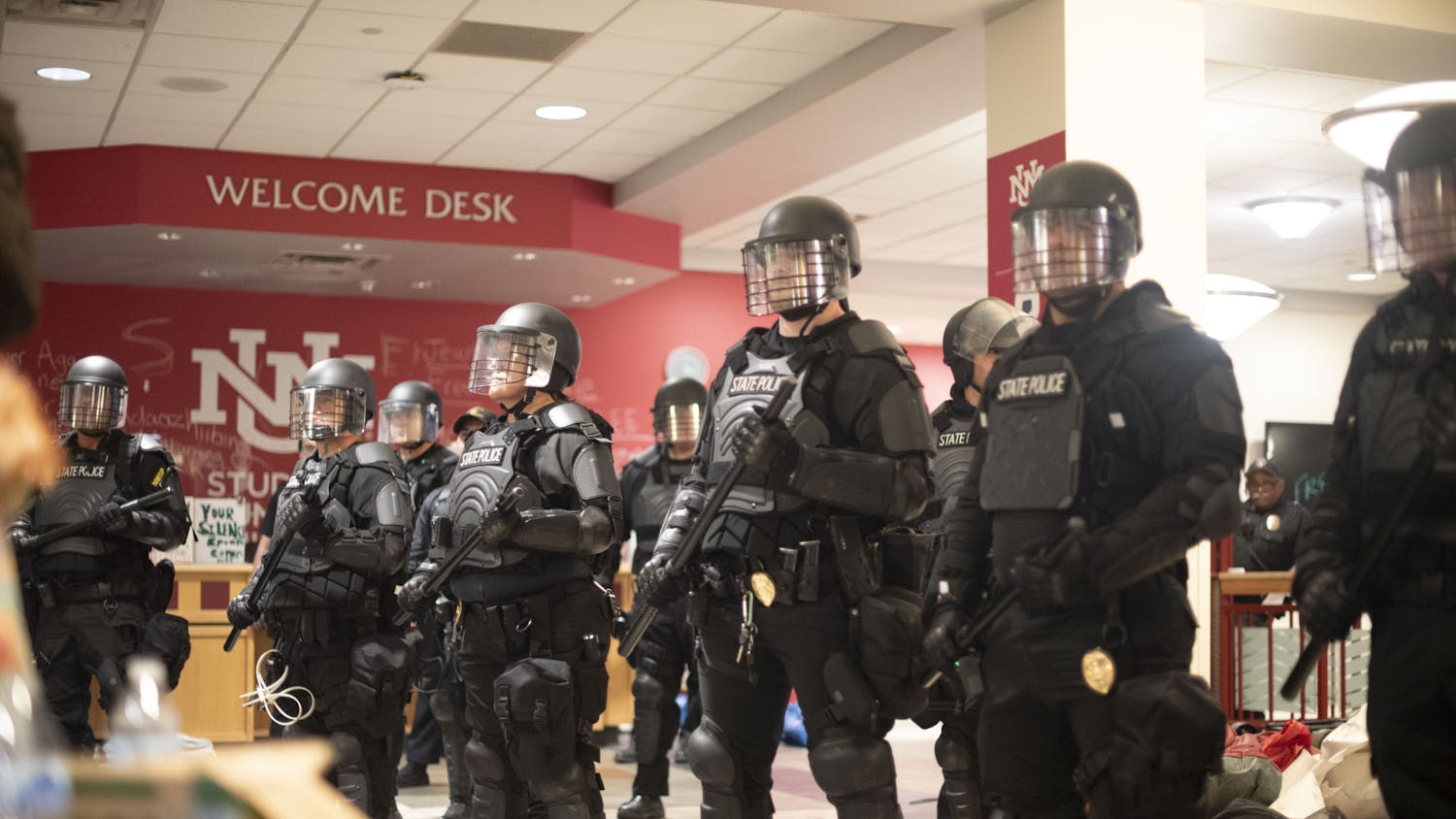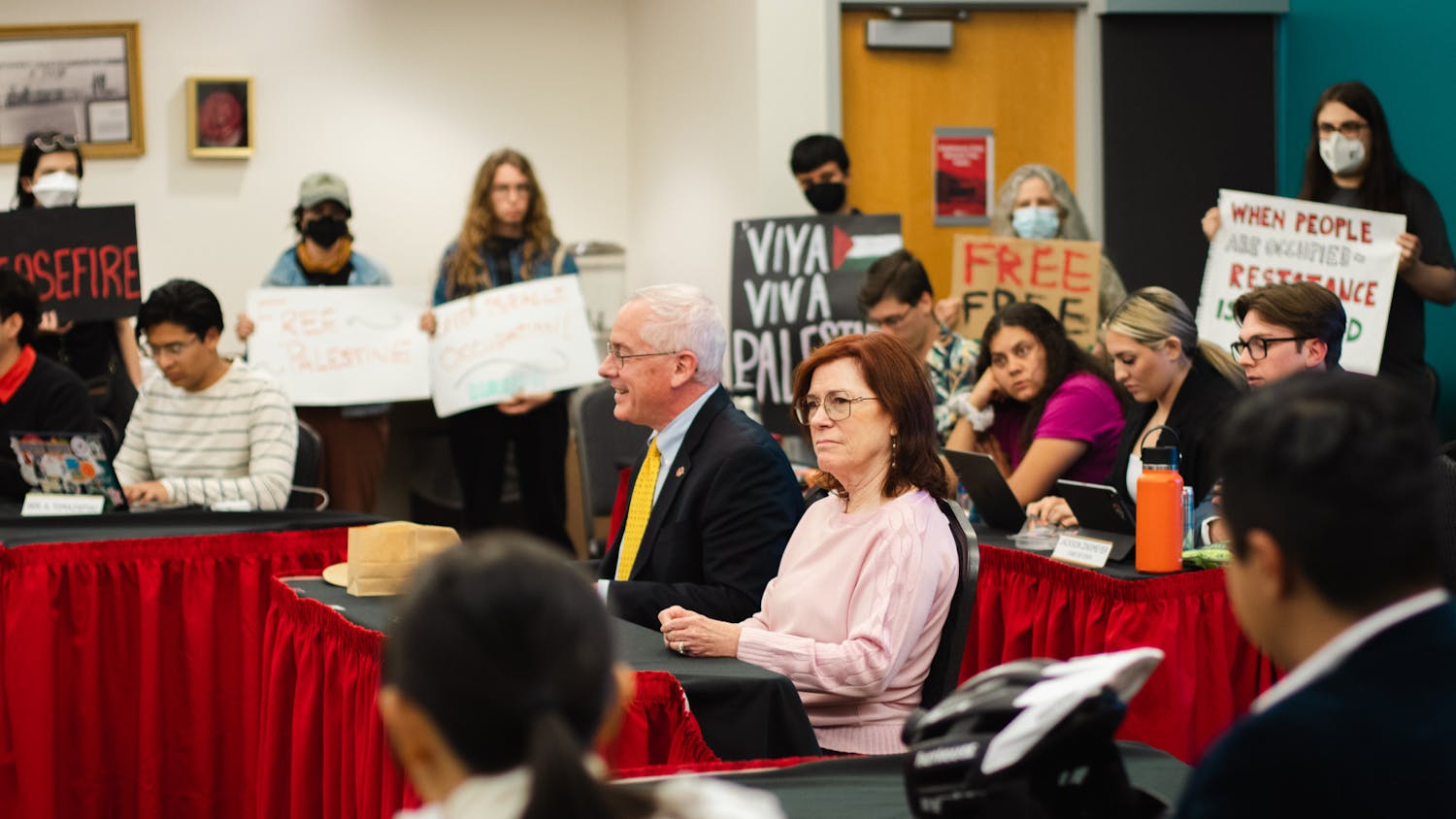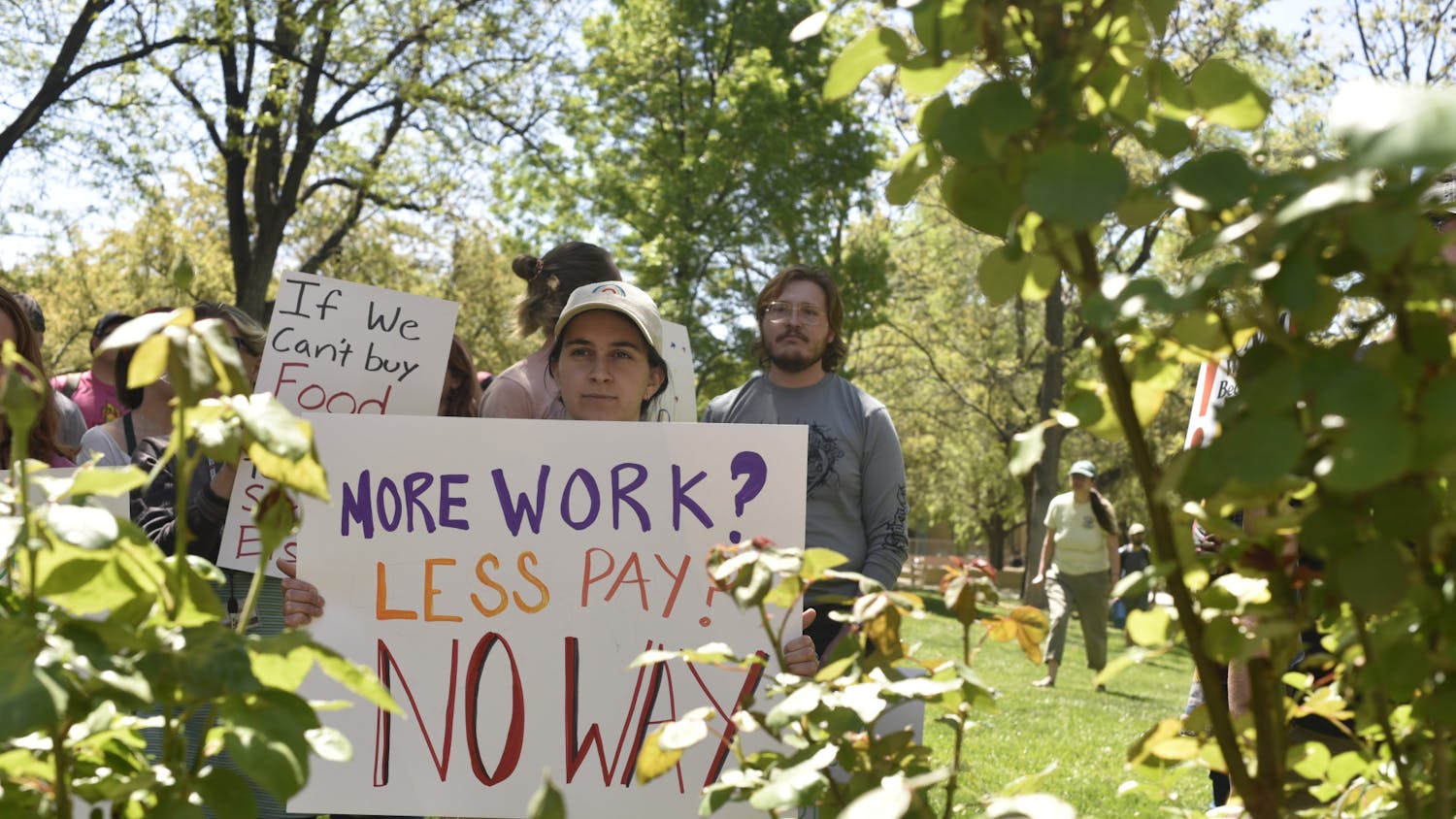More than 40 years ago, UNM professor Fred Harris bypassed the writer’s life to pursue politics and public office.
Success soon followed. He rose quickly from the legislature in his native Oklahoma to the U.S. Senate, headed the national Democratic Party during troubled times and then made a bid for the presidency in 1976.
Now at age 70, Harris is mining his experiences for the career he once considered but set aside while in law school: novelist.
Harris’ first novel, “Coyote Revenge,” received glowing reviews and won last year’s Nero Wolfe Award, which is named for the Nero Wolfe mysteries by Rex Stout.
His second mystery, “Easy Pickin’s,” was published last year, and he is working on a third book that he describes as a “political novel” involving a candidate for governor.
Harris is carving out his own fictional territory, following the example of friend and fellow Albuquerque mystery writer, Tony Hillerman.
Get content from The Daily Lobo delivered to your inbox
Harris unfolds his stories, including the work in progress, against the backdrop of Depression-era Oklahoma. It’s a time and place from his childhood. He was raised on a farm without electricity, without running water and no indoor plumbing. At age 5, his job was to drive a horse in circles to power a hay baler.
“I had thought I would write a non-fiction book about Oklahoma in the 1930s. So I had all of this material. When I decided to write fiction, I thought, ‘Well, this is kind of my Navajo setting, like Tony Hillerman.’ It’s something I know. I know the people very well. I like these people,” says Harris.
Reviewers have praised Harris’ sense of place and eye for historical detail.
Hillerman, a native of Oklahoma like Harris, says it’s unusual for a writer to win the Nero Wolfe Award for a first book. Hillerman earned the award in 1991.
“It’s very impressive that it was his first entry into fiction,” says Hillerman. “I thought he did a helluva job, of not just capturing the landscape but the language and the people. I grew up in the Depression too, and it’s the way it was.”
Woven into the fabric of Harris’ tales are jackrabbit hunts, “beer joints” serving low-alcohol “3.2 beer,” Philco radios and catfish “grabbling” — a risky fishing technique of thrusting an arm under water into a riverbank hole in hopes of grabbing a large catfish.
In Harris’ mysteries, the fictional hero is a young man booted out of law school, who became sheriff after returning to his hometown. It’s a community inspired by Harris’ birthplace of Walters, in southwestern Oklahoma.
In “Easy Pickin’s,” Sheriff Okie Dunn tracks down killers, kidnappers and even flies a borrowed airplane to Veracruz, Mexico, to rescue a young heiress. The book opens with a body falling from the sky.
“In mysteries, you’ve got to kill somebody off very fast,” says Harris, bursting out in staccato laughter.
Buried in the character of Ray Lee “Okie” Dunn are traces of Fred Roy Harris. Okie — like Harris — speaks Spanish and some Comanche. Tribal culture remains one of Harris’ passions.
Although fiction is Harris’ new calling, he is no stranger to writing. He is the author of nine non-fiction books and co-wrote or edited seven others.
“I would hate to have to go back to writing these political science and government books,” says Harris. “You’ve got all the footnotes and sources all around you. This is much more fun to do. I can make people do what I want them to do in writing fiction.”
What Harris hasn’t done is give up his “day job,” teaching political science at UNM. He moved to New Mexico and took up teaching after dropping out of the presidential race 25 years ago. He was named “best professor” at the university, according to a survey of students last year by the campus newspaper.
During his own college days, Harris flirted with the thought of becoming a novelist. He had written a novel and the head of the University of Oklahoma Press, which didn’t publish fiction at the time, offered to arrange an agent in New York. He was a senior in law school.
“I thought about it, but decided against it,” says Harris. “Here in the United States we’ve never been like England, for example, where political figures are also writers of fiction. I was thinking then ... of being a lawyer and maybe going into politics. Writing fiction just didn’t fit with that.”
But writing fiction fits just fine now with Harris.
“I agree with the great old Western painter, Charlie Russell, who once wrote that anybody who can make a living doing what he likes is lucky,” says Harris. “I’ve had a lot of careers and most of them simultaneously. Just like now, teaching and writing.”
He continues to dabble in politics. He serves as state chairman of Common Cause, a government watchdog group advocating a system of public financing of campaigns in New Mexico. He was chairman of the state Democratic Party in 1998-99. He headed the national Democratic Party in 1969-70, in the wake of the turbulent 1968 presidential nominating convention in Chicago.
But all that campaigning and travel on the rubber chicken circuit pays dividends for the politician-turned-novelist.
“The hard thing for me is plot. Dialogue is really easy. I’ve spent a lifetime remembering conversations word for word,” says Harris. “Being a politician is sort of like being in the Mafia, you learn orally and you remember conversations word for word.”





